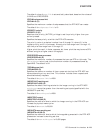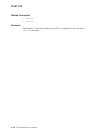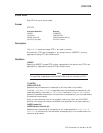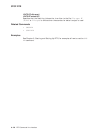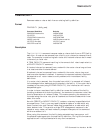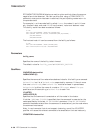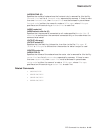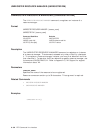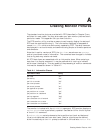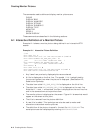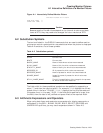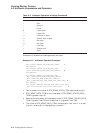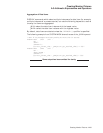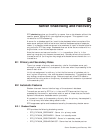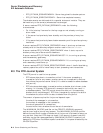
A
Creating Monitor Pictures
The standard monitor pictures provided with RTR (described in Chapter 5) are
sufficient for most needs. You may also create your own monitor pictures to suit
particular needs. This appendix tells you how to do this.
The RTR monitor utility provides a means to continuously display the status of
RTR and the applications using it. The information displayed is composed of
named
data items
which are continuously updated by RTR. The data items can
be displayed in various formats, and combined using simple arithmetic operators
and constants.
Note that in earlier versions of RTR, the
data items
were known as
counters
,
and only contained numeric information. The name has been changed to indicate
that string data may also be retrieved.
All RTR data items are associated with an information class. When entering a
data item in a display command, it may be prefixed with a string to indicate
which class it belongs to. This can speed up the processing of monitor commands.
Information classes are shown in Table A–1.
Table A–1 Information Classes
Information Class String
per node "rtr"
per facility "fac"
per link to a node "lnk"
per client process "cli"
per server process "srv"
per application process "prc"
per partition on a router "rpt"
per partition on a backend "bpt"
per key segment "ksg"
per transaction on a frontend "ftx"
per transaction on a router "rtx"
per transaction on a backend "btx"
The monitor is invoked with the
RTR MONITOR
command. RTR monitor displays a
monitor picture
that is periodically updated. See Section 6.2 for the full syntax
of the
MONITOR
command.
A
monitor picture
contains elements that are either text (such as labels and
titles) or variables derived from data items. Monitor pictures can be defined
either interactively at the
RTR>
prompt or defined in a file called a
monitor file
.
Creating Monitor Pictures A–1



